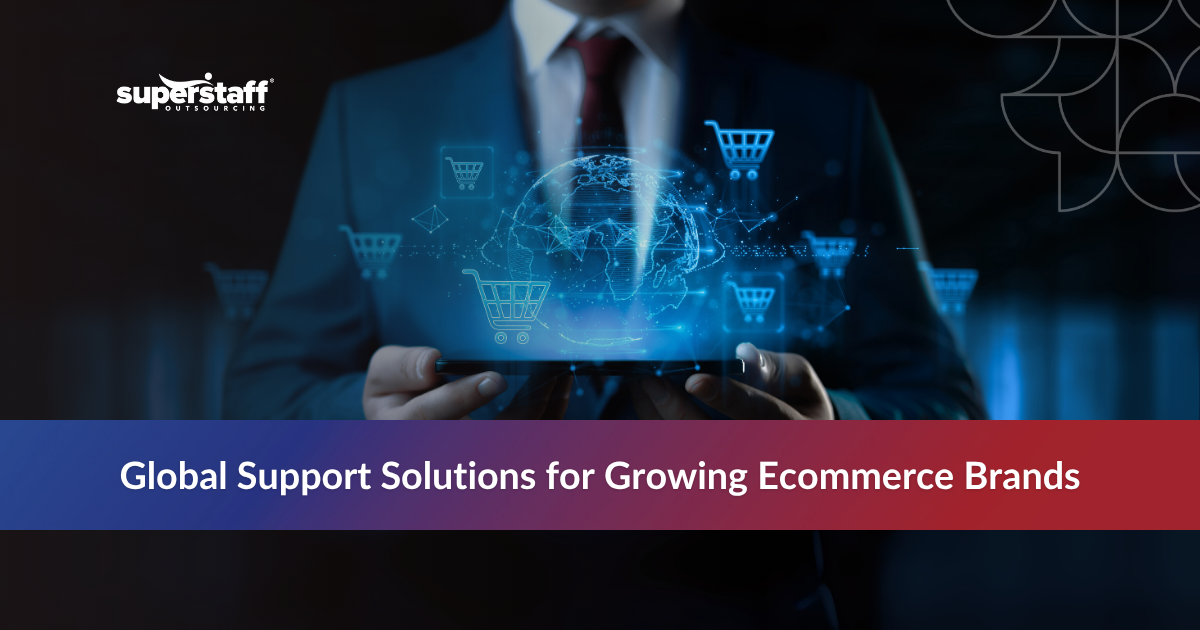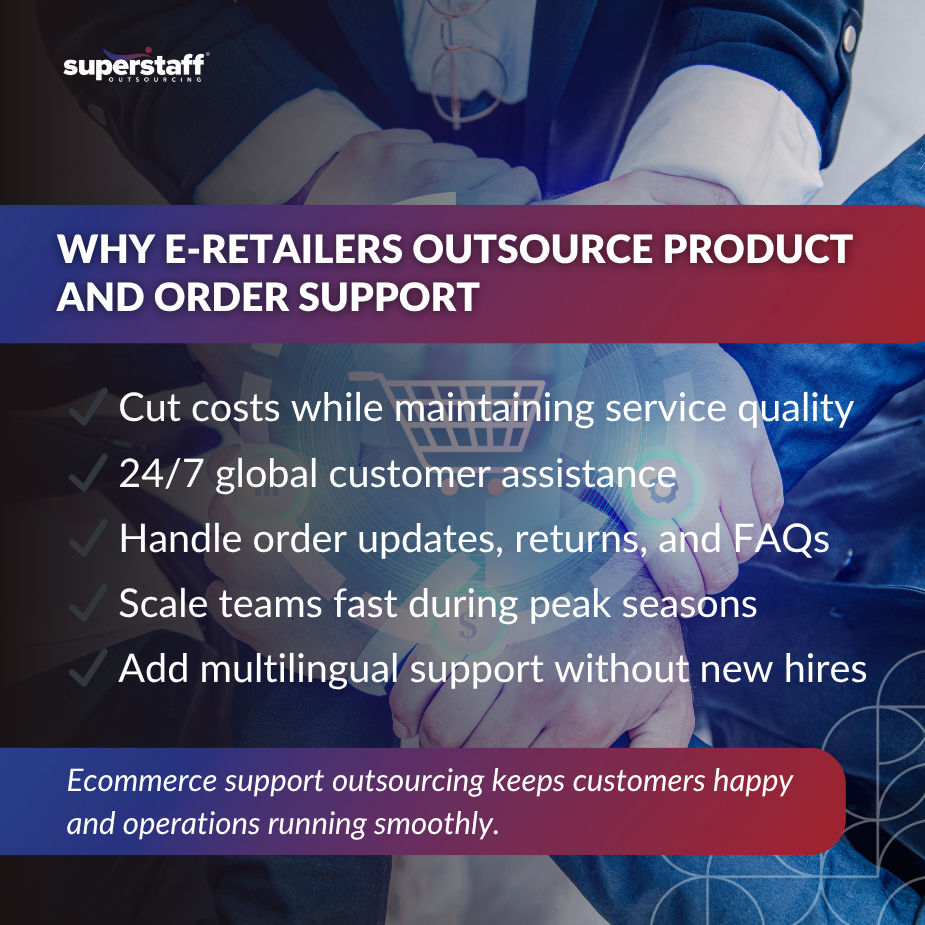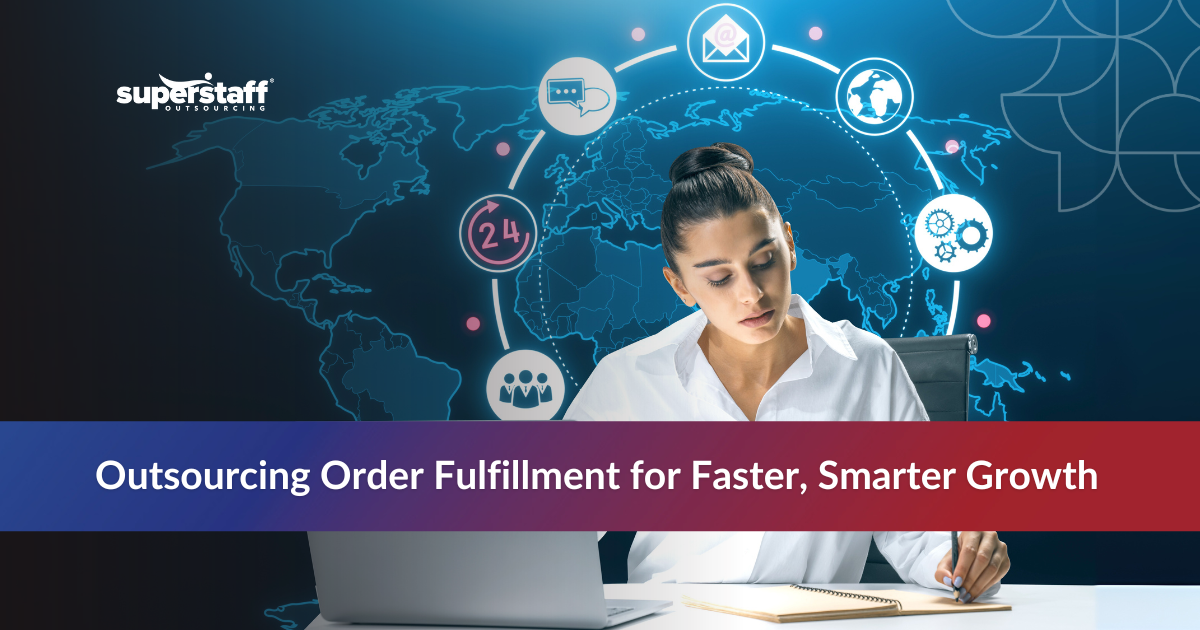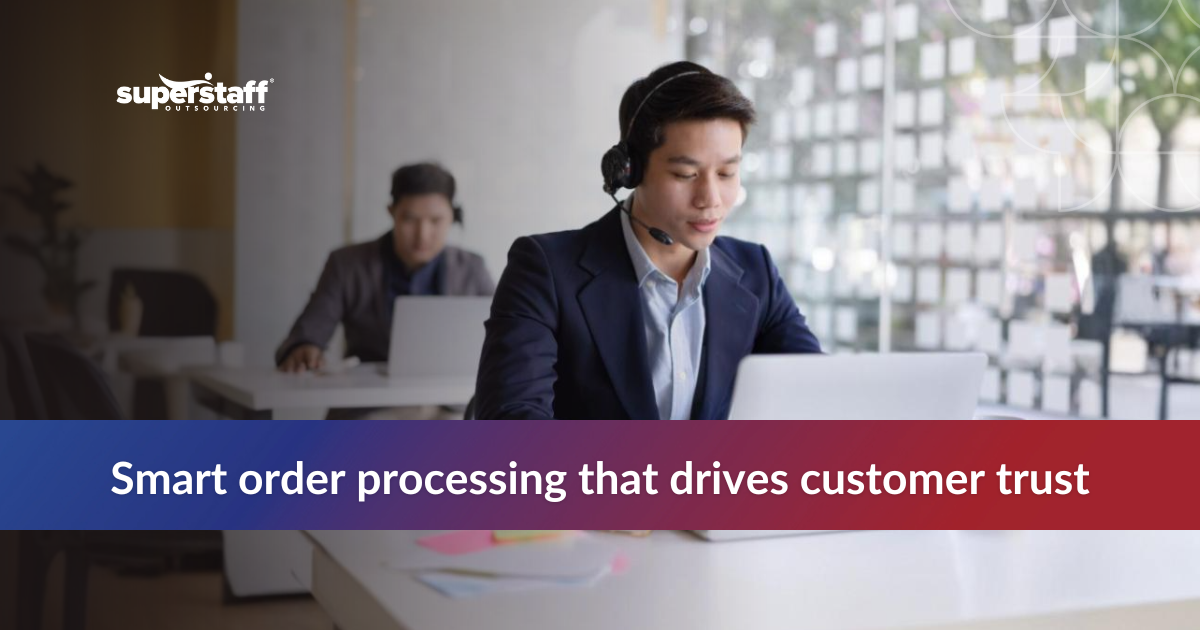
Online shopping continues to grow, with more businesses entering the e-retail space. As order volumes increase, so do customer inquiries. Questions about products, deliveries, and returns can overwhelm in-house teams. That’s why many brands are turning to e-commerce support outsourcing to manage product and order-related customer service more efficiently.
Outsourcing helps companies keep up with demand, offer faster service, and maintain customer satisfaction. Overseas teams provide scalable support across time zones, languages, and platforms. With the right setup, outsourcing simplifies operations and keeps customers informed every step of the way.

What E-commerce Support Outsourcing Covers
E-commerce support outsourcing involves hiring an external team to handle customer inquiries related to the buying process. These services often include:
- Product information and recommendations
- Order status updates and shipping details
- Return and refund processing
- Payment or account questions
- Technical help for accessing orders or subscriptions
Support can be delivered through email, live chat, phone, or social media channels. Some providers also offer chatbot integration or voice support to speed up response times.
Why Retailers Choose to Outsource Product and Order Support
There are several reasons why companies move support services overseas.
1. Cost Efficiency
Hiring full-time in-house agents for 24/7 support can be expensive. Outsourcing offers access to global talent at a lower cost.
2. Faster Response Times
Support teams located in different time zones ensure faster coverage. Customers get timely replies, even outside regular business hours.
3. Access to Trained Agents
BPO providers often specialize in retail customer support and offer ready-to-deploy agents who understand e-retail processes.
4. Easier Scaling
During sales, product launches, or holiday seasons, outsourcing partners can quickly scale support staff based on demand.
5. Technology Integration
Many outsourcing firms use CRMs, ticketing tools, and platforms that integrate easily with e-commerce stores.
Benefits of E-commerce Support Outsourcing
Delegating product and order inquiries to an external team offers more than just cost savings.
- Consistent Communication – Agents follow brand guidelines, scripts, and workflows to keep the tone consistent across all support channels.
- Multilingual Support – Companies can provide help in several languages without building separate regional teams.
- Focus on Core Tasks – In-house staff can shift focus from repetitive tickets to higher-value tasks such as marketing or product development.
- Data Insights – Support partners often provide reports that help brands understand trends in customer behavior and common product issues.
- Improved CSAT Scores – Faster service and knowledgeable support often result in higher satisfaction ratings.
How Offshore Teams Deliver Support to Global E-Retailers
Outsourcing support to global teams can improve service reach and performance. Here’s how offshore product support for global e-retailers works:
- Shared or dedicated support teams based in countries with strong BPO infrastructure
- Round-the-clock support shifts to handle inquiries from different regions
- Localized scripts and FAQs tailored to regional customers
- Ongoing agent training to match product updates and seasonal changes
Offshore providers ensure that even high volumes of support tickets are resolved promptly without affecting service quality.
Role of Automation in E-commerce Support
As e-commerce grows, businesses are also exploring automation to complement human support. One useful tool is the e-commerce AI agent. These bots can:
- Answer frequently asked questions about products and orders
- Help customers track packages
- Collect key details before routing to a live agent
- Operate 24/7 without breaks
While automation can’t replace human agents for complex issues, it helps reduce ticket volume and ensures customers get immediate help for common concerns.
Use Cases: When Outsourcing Makes the Most Sense
Certain situations make e-commerce support outsourcing especially useful.
1. Flash Sales and Peak Seasons
During promotions, support volume can spike. Outsourcing provides extra agents without permanent hiring.
2. Global Market Expansion
When entering new markets, outsourcing allows for multilingual and regional support without setting up local offices.
3. Product Launches
New product releases bring new questions. Outsourcing teams can manage the spike in queries and assist with onboarding.
4. Return and Refund Periods
Seasonal returns can increase after holidays. External support teams help process requests quickly and reduce customer wait times.
How SuperStaff Supports E-commerce Brands
SuperStaff provides tailored support services for online retailers. With experience in e-commerce support outsourcing, SuperStaff helps clients scale service while maintaining quality.
What SuperStaff offers:
- Dedicated or shared agents trained in e-commerce platforms
- 24/7 product and order support
- Integration with Shopify, Magento, WooCommerce, and others
- Reporting tools to track service quality and customer issues
- Multilingual teams for global support
Whether your store serves one region or several, SuperStaff builds support teams that match your growth.
Build Better Support Through Smart Outsourcing
As online sales increase, customer service must keep pace. E-commerce support outsourcing helps brands respond quickly, manage volume, and stay focused on growth. By using global teams and automation tools, retailers can serve their customers efficiently across every step of the buying journey.
Whether you’re handling product questions, tracking orders, or managing returns, outsourcing gives you the tools and talent to scale support without losing quality. Partner with a trusted provider like SuperStaff to streamline your service operations and support customers with confidence, no matter where they are.






